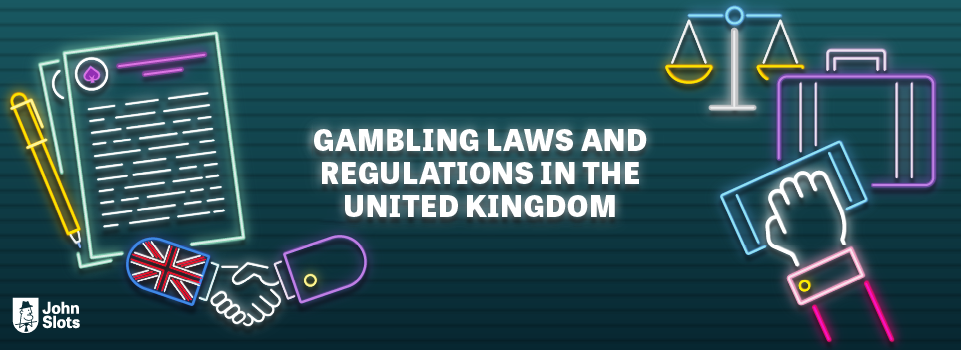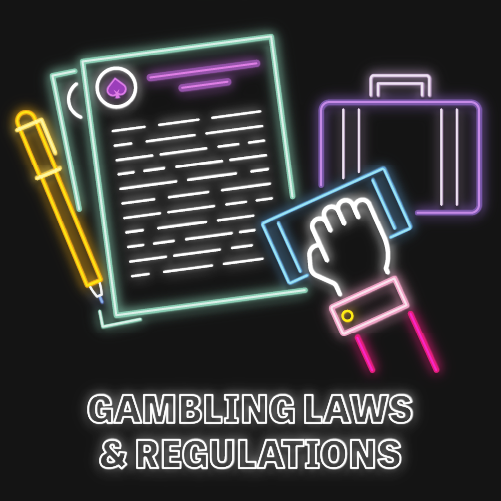
Overview of Online Gambling Laws
The United Kingdom has one of the best-regulated gambling scenes in the world. It has been decades since the first gambling laws were enacted in the county in the 1960s. The 1963 Betting, Gaming, and Lotteries Act made it possible for the first land-based casino to open its doors, but quickly after that, many similar establishments popped up on the market.
In the 2000s, rapid technological changes and the growing popularity of the Internet allowed the first online gambling platforms to be established. This called for changes in the existing gaming laws, so all the new changes were turned into a new Gambling Act that went public in 2005 and assumed full powers in 2007. This gambling act regulated the markets in England, Wales, and Scotland, with Northern Ireland choosing to have separate gambling laws.
Timeline of UK Gambling Regulations
1934
Betting and Lotteries Act
Introduced stricter controls on betting and lotteries, such as age restrictions and licensing requirements
1960
Betting and Gaming Act
Legalized betting shops and private casinos, marking a shift towards a more regulated gambling environment
1993
National Lottery Act
Established the UK’s National Lottery, which became a significant element of the gambling landscape
2005
Gambling Act
Created the Gambling Commission, tasked with regulating all gambling activities in the UK, including online gambling. It aimed to prevent crime, ensure fairness, and protect vulnerable people
2014
Gambling (Licensing and Advertising) Act
This update to the 2005 Act required all gambling operators serving UK customers to be licensed by the UK Gambling Commission, regardless of their location
2022
New Gambling Act
An update of the outdated brick-and-mortar focused Gambling Act to include online casinos and mobile gambling
Even though many changes were introduced with this gambling act, the online gambling market remained largely unregulated. Thus, the government created further changes and introduced the 2014 Gambling Act. With this act, all gambling platforms that wanted to offer gambling services in the UK needed a valid licence from the UK Gambling Commission. This rule includes native UK platforms and offshore platforms that accept British players.
The latest version of this Gambling Act dates from 2022, when the last significant changes were introduced. Namely, offshore casinos no longer needed a UKGC licence to offer their services to Brits. These licences are now meant for domestic casinos and sportsbooks, whether land-based or online.
Key Regulations and Authorities
Currently, the UK Gambling Commission is the only regulatory body for gambling and betting services in the UK. This has been the case since its inception in 2005. The markets that the UKGC oversees are:
- Casinos and online gambling
- Betting and sportsbooks
- Lotteries and bingo
- Gaming machines
- Gambling advertising
While all these markets remain under the watchful eye of the UKGC, that was not always the case. Lotteries were regulated by the 1993 National Lottery Act, and the regulatory body was the National Lottery Commission. Spread betting is regulated by the Financial Conduct Authority (FCA), not the UKGC.
If you want to learn more about the regulations that have shaped the UK gambling scene over the years, we can mention three main acts:
Gambling Act | Key Features |
|---|---|
Gambling Act 2005 | This is the first act to regulate online and land-based gambling. It affected only casino gaming, not lotteries or spread betting. This act made it mandatory for casinos to be fair and transparent in all their services. |
Gambling Act 2014 | This new act made it possible for casinos to be regulated with licences, while licences were mandatory for all platforms that wanted to offer gambling services. |
Gambling Act 2022 | The outdated rules regarding land-based gambling were amended to fit the changing casino landscape. The act included protective measures for vulnerable individuals and underage children. |
Licensing Requirements
Each platform that wants to offer gambling services to UK players has specific criteria that it must meet to qualify for a UKGC licence. You can find licensing information on the official UKGC website, where this organisation lists the needed documents, fees, and waiting times for all types of licences. Businesses can choose from one of three licences:
- Non-remote licence
- Remote licence
- Ancillary licence
⚠️ At JohnSlots we exclusively feature only UKGC-licensed casinos to ensure the safety and well-being of our British players.
When applying for a gambling licence, the business must fulfil the following requirements:
- Provide information on the owner of the business, the year it was founded, the location of the headquarters, and other essential identification information.
- Provide current financial standings. This is essential so the UKGC can confirm that the company is stable and can payout all player winnings. Moreover, the company should have anti-money laundering compliance rules and offer player protection measures regarding finances.
- Have a clean criminal record that confirms the company has no prior gambling violations and is completely safe for UK gamblers.
- Provide various safety features, including player and data protection measures, to ensure players are always protected. The gambling platform should also include responsible gambling tools and measures.
- Provide online casino games from reputable providers with fair and transparent rules and terms. The games should have an eCORGA certificate to confirm their transparency and fairness.
- Follow the rules of the Advertising Standards Authority (ASA) and have advertisements and promotional material that are not misleading but provide accurate and transparent information.
Taxation and Fees
UK punters don’t have to pay taxes on winnings when betting online, whether on casino games or sports. However, casino providers must pay a 21% tax on their gross gaming revenue. This tax was only 15%, but the regulatory body increased it in 2019. Recent reports say that it could be further increased in the coming years.
Player Protection Measures
The developments in the online gambling markets worldwide have called for responsible gambling measures to become a mandatory part of each platform. The UK Gambling Commission has rules and regulations that mandate online casinos offer responsible gambling tools. Some tools you’ll often find at online casinos include deposit limits, wager limits, time-outs, reality checks, and self-exclusion. Casinos should offer easy access to support groups and organisations for problem gambling, similar to GamStop and GamCare.
Another essential player protection measure is geared towards underage individuals. The legal gambling age in the UK is 18, so casinos and sportsbooks must not offer their services to individuals younger than that. The UKGC requires that casinos have mandatory KYC or ID checks for newly registered users to ensure they are of legal gambling age.
Recent Changes and Updates
The UK gambling landscape is constantly changing. Recent news reports say the UKGC will introduce new requirements to curb problem gambling. Financial risk assessments and vulnerability checks will be used for each user to prevent them from going into financial debt.
Another prediction says that the way casino games are designed will also change. There will be stricter bet limits, while options like autoplay and turbo spin will likely be banned. We have yet to determine all the specifics, but reports suggest these changes will take effect before February 2025.
Latest Regulations Updates
Read the latest legislation changes and updates in our news section below.
FAQs
Gambling is legal in the UK, and anyone aged 18 and over can freely create an account at a licenced and regulated online casino. While playing at offshore casinos is not forbidden, it’s recommended that casino enthusiasts stick to playing only at UKGC licensed casinos.
If you want to confirm the presence of a UKGC licence at an online casino, you should check the website’s footer for licensing information. Similarly, you can check the ‘About Us’ section for more information or visit the UKGC website and check the registry for the specific casino.
There are many licensed online casinos in the UK, with the most popular casinos being 888, Betfair, Betway, All British, etc. You can check the UKGC registry to learn more about online casinos that are safe and available for British gamblers.
References:
- 📑 Gambling Commission. (n.d.). Gambling-related legislation. Gambling Commission. https://www.gamblingcommission.gov.uk/about-us/guide/gambling-related-legislation
- 📑 UK Government. (2020). Review of the Gambling Act 2005: Terms of reference and call for evidence. UK Government. https://www.gov.uk/government/publications/review-of-the-gambling-act-2005-terms-of-reference-and-call-for-evidence/review-of-the-gambling-act-2005-terms-of-reference-and-call-for-evidence
- 📑 Parliament of the United Kingdom. (2012). The Gambling Act 2005: A critical review. UK Parliament. https://publications.parliament.uk/pa/cm201213/cmselect/cmcumeds/421/42103.htm
- 📑 Gambling Commission. (2007). The Gambling Act 2005: Regulatory framework. Gambling Commission. https://www.gamblingcommission.gov.uk/for-licensees/GLA/The-Gambling-Act-2005.aspx
- 📑 High Stakes: Gambling Reform for the Digital Age. (2023). In www.gov.uk/official-documents. Department for Culture, Media & Sport. Retrieved from https://assets.publishing.service.gov.uk/media/644923b5814c6600128d0723/1286-HH-E02769112-Gambling_White_Paper_Book_Accessible1.pdf
- 📑 Griffiths, M. (2010). Gambling legislation in the UK: Past, present, and future. Journal of Gambling Issues, 24, 43-58. https://doi.org/10.4309/jgi.2010.24.5














